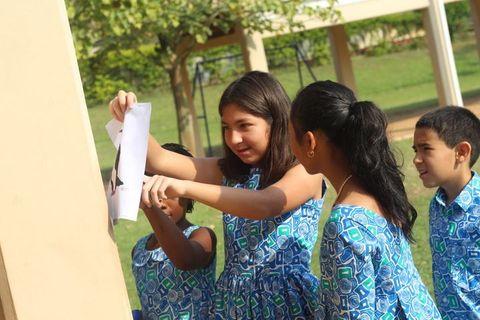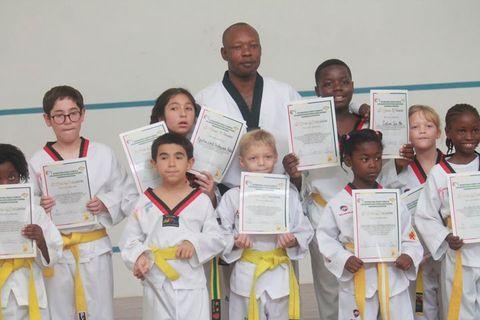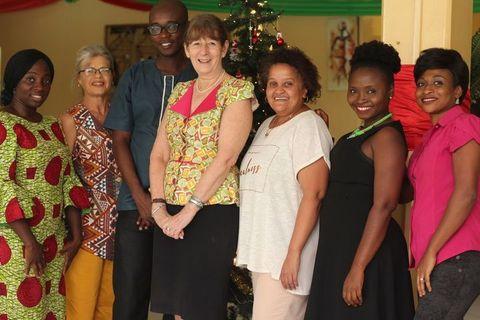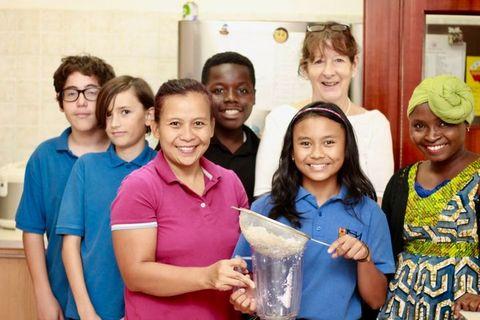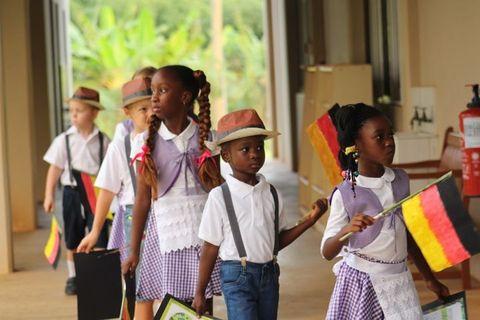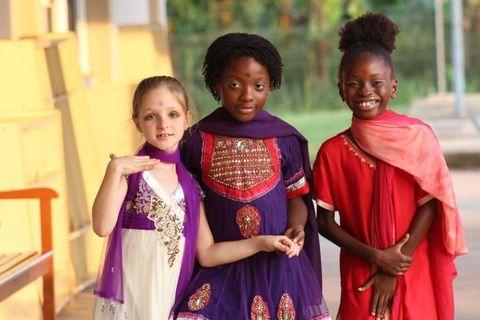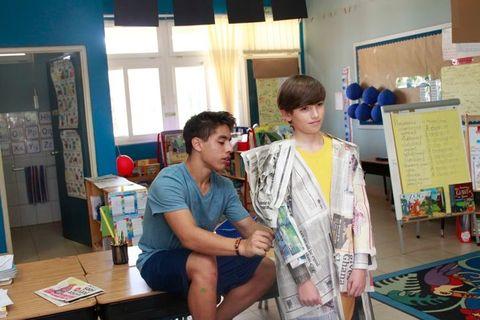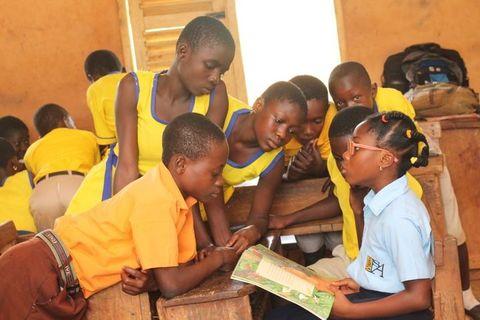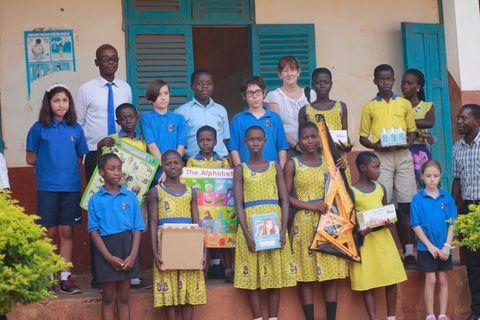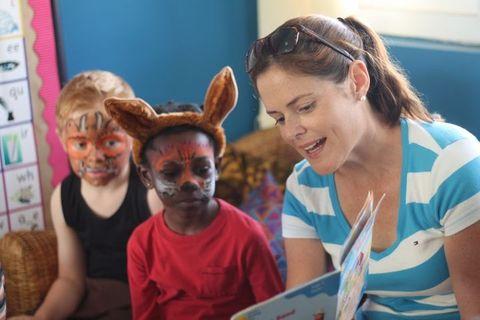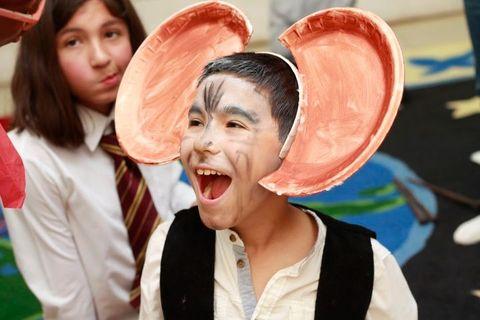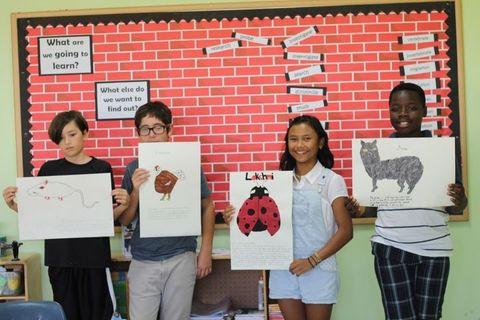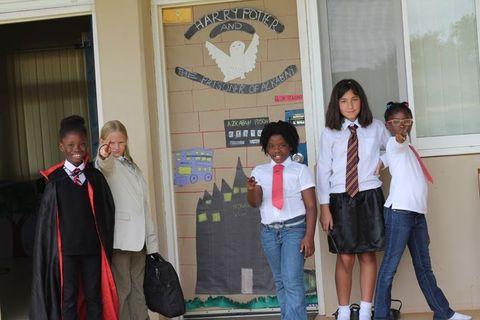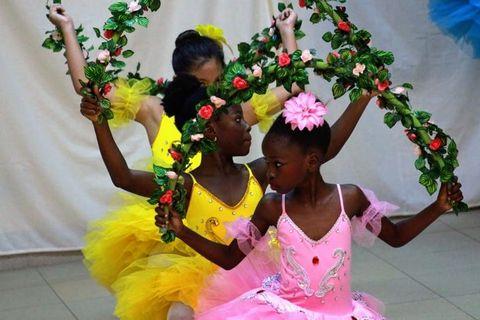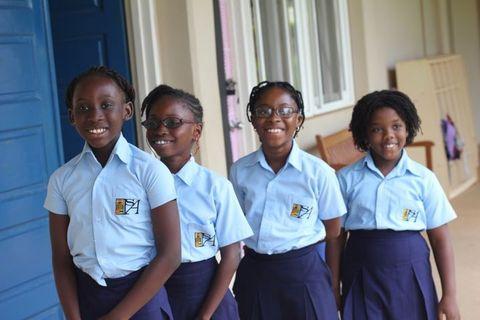Primary School Teacher
International School of Ahafo
Ghana
- Quick apply
- Expired
- Salary:
- Competitive
- Job type:
- Full Time, Fixed Term
- Start date:
- August 2019
- Apply by:
- 12 May 2019
Job overview
Reception – Y2 Position
The International School of Ahafo (ISA) is looking to appoint a highly experienced Early Years Teacher who has Cambridge and IPC experience and has worked extensively with Reception, Year 1 and Year 2 children. Applicants must also be familiar with the Jolly Phonics or Letters and Sounds Phonics programme and fluent in speaking, reading and writing English. This class is supported by a local Teaching Assistant.
Primary (Year 3 and 4) Position
We are also seeking a flexible teacher who will be responsible for a Y3/4 mixed age class, but who has the flexibility to teach across the Primary ages, and is comfortable sharing a class with one of our qualified and experienced Ghanaian teachers.
Applicants must also contribute fully to the wider life of the school through our extra-curricular activities programme. The school employs local specialists for Music, PE and French but, if any applicant has an interest in teaching these areas in addition to their class duties, this will be seriously considered. This is an excellent opportunity to work as part of a small but valued, professional and collegial team.
The International School of Ahafo is a small school (with around 30 students) 292 kilometres northwest of Accra and is located in a remote area of the Brong Ahafo region. It has been set up to educate the children of employees at the nearby Newmont Ghana Gold Limited mine; these Ghanaian/internationally mobile parents have high aspirations for their children and high expectations of the teachers. The school uses the Cambridge Primary and Secondary 1 curricula, along with the International Primary Curriculum (IPC) and is currently seeking membership of the Council of International Schools (CIS). We currently teach children from Reception to Year 9 and thereafter our students tend to transfer to International Schools in Accra, or boarding schools abroad. Class sizes are low and of mixed ages due to small student numbers. The students are delightful, well-behaved and well-motivated, and the school offers plenty of opportunities for teachers to hone their teaching skills. If you are looking for an interesting challenge and can cope with the gentle chaos that life in Ghana brings, and if you enjoy a very quiet life away from the hustle and bustle of the city, then this position may suit you very well.
The school offers a very reasonable salary 100% of which is placed directly in a bank account in your home country – local currency can be drawn from ATMs in the village if your card is internationally accepted. Flights are paid twice a year (in August and December) to and from your point of origin, medical costs are covered by the school and there are opportunities for staff trips around Ghana. Free accommodation in the residential compound is also offered, although it is taxed; all utilities are paid for by Newmont.
Essential Requirements
- International school experience, particularly in a developing country
- Experience in teaching through an international curriculum e.g. IBPYP or IPC
- Experience in working with young children in a mixed age class.
- Native-level English speakers
- Fluency in reading and writing English
- Strong working knowledge of enquiry learning.
Please send a CV plus recent photo and letter of application to the ISA Principal at Barbara.deveney@isa.edu.gh. For further information about ISA, please see our website at www.isa.edu.gh (or search International School of Ahafo)
Contract Term: 2 Years but is renewable thereafter by mutual agreement.
The International School of Ahafo is committed to safeguarding and promoting the welfare of children, and applicants must be willing to undergo child protection screening appropriate to the post, including checks with past employers and the Disclosure and Barring Service.
Offer of employment is subject to visa requirements and local rules and legislation. A final offer of employment will be conditional upon a satisfactory police check, medical check and visa approval.
Attached documents
About International School of Ahafo
- International School of Ahafo
- Mensah Kumta Village, Newmont Ahafo Project, Kenyasi
- Brong Ahafo Region
- Ghana
ISA is a not-for-profit, English speaking international, co-educational day school, which uses the Early Years Foundation Stage (EYFS) and Cambridge Primary, and Secondary 1 programmes along with the International Primary Curriculum (IPC). The school currently provides a Reception – Year 9 programme for students whose families work for Newmont Ghana Gold Limited, a subsidiary of Newmont Mining Corporation in the USA. Currently, students come from: Ghana, Peru, UK, Chile, Australia, Zimbabwe, Indonesia and South Africa and English language proficiency is excellent.
Students are taught in four mixed aged class groups as follows:
- Reception – Year 2 (Sankofa Class)
- Years 3 – 4 (Nkyinkyim Class)
- Years 5 – 6 (Gye Nyame Class)
- Years 7, 8 and 9 (Nyansapo Class)
Class sizes are typically between 7 and 12 students.
Location
The International School of Ahafo is 292 kilometres northwest of Accra, and is located in a very remote area of the Brong Ahafo region. Sunyani, the capital of the Brong Ahafo Region, is 60km north of the school and Kumasi, which offers the nearest airport to the school, is the second city and the seat of the Ashanti people. Kumasi is about a three-hour drive away.
Premises and Facilities
The school is housed in a purpose-built complex, with an open courtyard design. The classrooms on the West and East wings are connected by covered walkways. All rooms are air-conditioned. The spacious classrooms, a well stocked library, Art room, Music room, ICT room and Science Laboratory provide an excellent learning environment. The school also has access to sports facilities, including a 25m swimming pool, through its location within the Newmont Mines residential compound (Mensah Kumta Village). The current premises are adequate for growing the school to its full capacity of 100 students.
Curriculum
Students in Reception follow the Early Years Foundation Stage curriculum and move to the Cambridge Primary Curriculum for Years 1 - 6. The school also delivers the IPC. For the first three years of Secondary school (Years 7 - 9), the Cambridge Secondary 1 Curriculum is followed. The full programmes offered at ISA provide broad and balanced study across a wide range of subjects, using enquiry based approaches to learning.
Extra-curricular activities offered are dependent upon the interests of individual staff members and community support. Currently, the following are offered: computer, football, scouts, drama, art and crafts, science and technology, music, taekwondo and dance clubs. Parents offer ballet and cricket lessons.
IT facilities
All classrooms have data projectors and screens, and PCs and tablets are available for whole-class use. A separate ICT room is available for whole-class teaching.
School Year
The school year is typical of northern hemisphere schools and is divided into three terms so the academic year begins at the end of August and finishes at the end of June/early July. Mensah Kumta Village
Accommodation
Teachers live in the Mensah Kumta Village (MKV) which houses all expatriate and senior Ghanaian staff of Newmont. It is spread over 30 acres and includes 92 homes, the School, the Clubhouse, the shop and recreation facilities, all within a secure environment. All tap water in the houses is treated and drinkable. The MKV Clubhouse is open seven days a week and dinner is à la carte menu. Friday nights are a BBQ or theme evening and on Sundays there is a Sunday Brunch.
The bungalows at Mensah Kumta Village were built in 2005 and are quite spacious. In addition to the living room and bedrooms, there is a sun room, laundry area, dining room and kitchen. Each bungalow is furnished and equipped with comfortable basics. There is uninterrupted power and water supply, the houses are all air-conditioned, fitted with cable TV (DSTV) and bills are paid by Newmont. A/C power is 220/240v and outlets use the three-pronged UK style plug. There is absolute peace and quiet here; a sharp contrast from the hustle and bustle of city life. The cycle or walk to school is about 5-10 minutes.
Banking
There is a Barclays ATM on site, located next to the shop, which accepts a VISA network ATM card. There are other banks (Ecobank, Ghana Commercial Bank, Agric Development Bank etc.) in the village and they all accept visa cards in their ATMs.
House Staff
The teachers, in common with other expatriates, are able to employ local people to assist with household chores. Some employ a cleaner, but others employ a cook and/or a nanny. A full time cook/cleaner would expect to earn $100 a month.
Shopping
The commissary in the MKV village has a reasonable stock of basic foodstuffs and toiletries, which cover necessities. Other options available are a bike ride away at the local markets and weekly trips to Sunyani and Kumasi.
Medical facilities
Teachers from ISA are able to use the fully-staffed clinic run by International SOS (ISOS) at the Newmont Mine plant site for routine medical care. ISOS is a leader in international health care and medical assistance and works with multi-national organizations across the world. The clinic has daytime opening hours - 7:30am to 5:00pm but is staffed 24/7 to handle emergencies. Private hospitals in Sunyani and Kumasi are able to cope with more serious illness and emergency medical care is covered by the BUPA Vital Africa Insurance Plan.
GHANA
Ghana (previously known as the Gold Coast) is a very safe country – among the safest and most politically stable in Africa. It has a rich history dating back to the 15th century, through to Independence from the British in 1957. The Ghana coast is studded with 32 castles, built by the Portuguese as trading posts in which a range of European goods such as cloth, beads guns and ammunition were sold in exchange for gold. It was only later that the warehouses which were built to store normal trading items found a new use as dungeons in which to imprison Africans prior to their transportation to slavery. Ghana’s coast is incredibly beautiful; warm winds gently blowing over the palm fringed beaches on which there are often an assortment of picturesque, dug out fishing boats.
People
Ghanaians are considered to be some of the friendliest people in the world, with family and religion playing a very important role in the life of a Ghanaian. The population is estimated at 23 million.
Languages
The official language is English. Local Ghanaian languages are widely spoken, including Akan, Moshi-Dagomba, Ewe, Twi, and Ga.
Religion
Christian, Muslim and traditional beliefs. All forms of religion have a strong influence on Ghanaian life.
Economy
Ghana has a diverse and rich resource base economy which includes manufacturing and exportation of digital technology goods, automotive and ship construction. The exportation of diverse and rich hydrocarbons and industrial minerals gives Ghana one of the highest GDP per capita in Africa. Ghana is the fastest growing economy in Africa and one of the top-ten fastest growing economies in the world.
Climate
The climate is tropical - hot and humid in most areas throughout the year. There are two rainy seasons in Ghana: from March to July and from September to October. Temperatures average between 25°C and 30°C.
Time Zone - GMT (no daylight savings)
Clothing
Most of the year the temperatures are over 25°C so light cotton provides comfortable clothing. However, during January the temperature can drop to as low as 15°C in the early hours of the morning so a sweater of jacket may be required. Be prepared for heavy rain. The dress code for school is smart but comfortable: shirts, ties and trousers for men and modest professional clothes for women. Out of school, dress is very informal, although Ghanaians expect expatriates to be respectful and modest in their attire.
Visa
Most nationalities require a visa to enter Ghana. Please check with the Ghanaian Consulate in your country for more information on visa requirements and procedures.
Please note that you are wholly responsible for fact checking in respect of the information provided by schools. Please also check for the latest visa and work permit requirements that may apply. Tes is not responsible for the content of advertisements or the policies adopted by advertising schools. Tes asks that all schools follow Tes' Fair Recruitment Policy.


